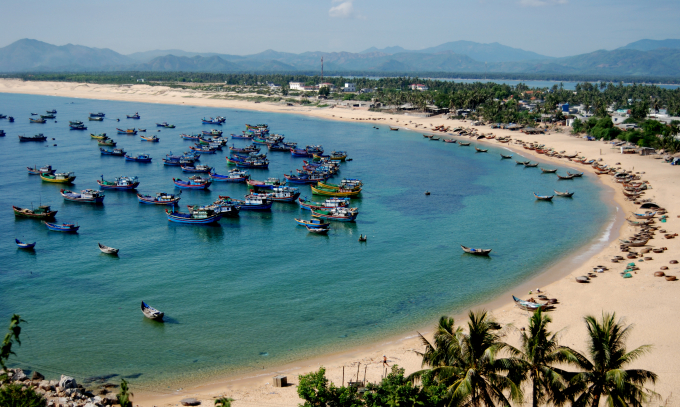Contents of sea and island environment pollution control in Vietnam
What are the contents of sea and island environment pollution control in Vietnam? - Thanh Tan (Hau Giang)

Contents of sea and island environment pollution control in Vietnam (Internet image)
Regarding this issue, LawNet would like to answer as follows:
1. Contents of sea and island environment pollution control in Vietnam
Contents of sea and island environment pollution control according to Article 43 of the Law on natural resources and environment of sea and island 2015 is as follows:
- Carry out investigation, statistical work, classification and assessment of waste sources from mainland, activities on sea and islands; state of environmental pollution;
- Conduct regular monitoring and assessment of current conditions of water, sediments, ecosystems and biodiversity of sea and island areas;
- Conduct investigation and assessment of loading capacity of environment in the areas running high or very high risk of pollution; make public announcement of areas out of capacity to receive waste;
- Prevent, detect, handle and overcome pollution and degradation of environment, ecosystems; improve and remediate environment and ecosystems polluted and degraded;
- Identify level of risk of environmental pollution; zone and map risk of environmental pollution;
- Cope with environmental emergencies;
- Grant permits and control sea dumping;
- Cooperate with state agencies and foreign agencies and organizations in sharing information and assessing sea water environment quality; control cross-border environmental pollution according to law provisions;
- Make public announcement of areas running the risk of environmental pollution, information about water, sediments of sea and island areas;
2. Principles of sea and island environment pollution control in Vietnam
Principles of sea and island environment pollution control in Vietnam according to Article 42 of the Law on natural resources and environment of sea and island 2015 are as follows:
- Control of sea and island environment pollution must be regularly conducted with the task of prevention being prioritized; carry out early and effective remedy for pollution, sea environment emergencies, degradation of sea and island environment.
- Sea areas must be zoned for risk of pollution to come up with effective solutions for pollution control.
- Waste sources from mainland, activities on sea and islands, waste of unclear origin and from border crossing must be tightly controlled. Control of waste sources, waste matters must involve consideration of loading capacity of sea and island environment.
- Effectively coping with sea environment emergencies and early prevention of spread of pollution
- Close coordination among relevant sectors, levels, organizations and individuals for control of sea and island environment pollution;
3. Regulations on control of environment pollution from sea activities in Vietnam
Regulations on control of environment pollution from sea activities according to Article 45 of the Law on natural resources and environment of sea and island 2015 are as follows:
- Hazardous waste from sea activities must be collected, classified, stored, transported and treated according to regulations on environmental protection.
- Any works, facility on the sea that are no longer used after expiration date must be dismantled and transported to mainland or dumped at sea as prescribed hereof and other relevant law provisions.
- Owners of vehicles transporting and storing petrol, oil, chemicals, radioactive substances, toxins and other substances running the risk of sea environment emergencies must have a plan for prevention and coping with environmental emergencies, ensuring no leakage, loss and spilling.
- Wastewater from ships, drilling rigs, and other works and facilities on the sea; oil sludge and mud containing toxic mixtures from petroleum exploration and extraction must be treated to meet technical regulations on environment before being discharged to sea.
- Ballast water, rinses, washing water, bilge water must be treated to meet technical regulations on environment before being discharged to sea.
- Discharge of ballast water, rinses, washing water, bilge water and other wastewater from ships is instructed in accordance with regulations of the laws on maritime, environmental protection, relevant law provisions and the international agreements to which the Socialist Republic of Vietnam is a signatory.
- Solid waste from ships, drilling rigs, works and other facilities on sea must be closely managed under the laws; mud dredged from navigable channels, ports must be transported to mainland or dumped at sea as prescribed hereof and relevant law provisions.
- Ports must be equipped with a system to receive and process domestic waste, residual oil from vehicles on sea.
- Waste floating on ocean surface or along the shores must be collected, classified and treated according to regulations on environmental protection and relevant law provisions.
- Cases of land rent exemption and reduction under the latest regulations in Vietnam
- Economic infrastructure and social infrastructure system in Thu Duc City, Ho Chi Minh City
- Regulations on ordination with foreign elements in religious organizations in Vietnam
- Increase land compensation prices in Vietnam from January 1, 2026
- Determination of land compensation levels for damage during land requisition process in Vietnam
- Who is permitted to purchase social housing according to latest regulations in Vietnam?
-

- Emergency response and search and rescue organizations ...
- 10:29, 11/09/2024
-

- Handling of the acceptance results of ministerial ...
- 09:30, 11/09/2024
-

- Guidance on unexploded ordnance investigation ...
- 18:30, 09/09/2024
-

- Sources of the National database on construction ...
- 16:37, 09/09/2024
-

- General regulations on the implementation of administrative ...
- 11:30, 09/09/2024
-

- Notable new policies of Vietnam effective as of ...
- 16:26, 11/04/2025
-
.Medium.png)
- Notable documents of Vietnam in the previous week ...
- 16:21, 11/04/2025
-
.Medium.png)
- Notable documents of Vietnam in the previous week ...
- 16:11, 02/04/2025
-
.Medium.png)
- Notable new policies of Vietnam to be effective ...
- 16:04, 02/04/2025
-
.Medium.png)
- Notable new policies of Vietnam effective from ...
- 14:51, 21/03/2025

 Article table of contents
Article table of contents
